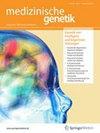Liquid biopsies and those three little words: finding the perfect match for the MTB
IF 1.4
4区 生物学
Q4 GENETICS & HEREDITY
引用次数: 0
Abstract
Abstract Monitoring ctDNA by liquid biopsies seems to represent the perfect match for precision oncology and its cornerstone clinical framework: the molecular tumour board (MTB). Detecting and scrutinising the success of targeted therapies or tracking and, for that matter, addressing the therapy with the evolutive nature of a tumour are some of the main advancements one considers to be important for the MTB. One challenge is correlating the estimated allele frequency of each identified genetic alteration determined by analysing the ctDNA sequencing results and matching these with the range of suitable drugs, which may limit the simultaneous treatment of all tumour variations. This limitation arises because a new biopsy would typically be required to evaluate the response to treatment. As a result, evaluating the success of MTB recommendations relies on traditional staging methods, highlighting an existing diagnostic gap. Thus, optimising liquid biopsy technology could enhance the efficacy of MTB treatment recommendations and ensuing tailored therapies. Herein, we discuss the prospect of ctDNA analyses in the molecular tumour board.液体活检和这三个小词:为山地车寻找完美匹配
摘要 通过液体活检监测ctDNA似乎是精准肿瘤学及其基础临床框架--分子肿瘤委员会(MTB)的完美结合。检测和检查靶向治疗的成功与否,或跟踪并根据肿瘤的演变特性来解决治疗问题,是人们认为对 MTB 非常重要的一些主要进展。一个挑战是如何将通过分析 ctDNA 测序结果确定的每个已识别基因变异的估计等位基因频率与适合的药物范围相匹配,这可能会限制对所有肿瘤变异的同时治疗。出现这种限制的原因是,通常需要进行新的活检来评估治疗反应。因此,评估 MTB 建议的成功与否依赖于传统的分期方法,凸显了现有的诊断差距。因此,优化液体活检技术可以提高 MTB 治疗建议的疗效,并随之提供量身定制的疗法。在此,我们将讨论ctDNA分析在肿瘤分子分期中的应用前景。
本文章由计算机程序翻译,如有差异,请以英文原文为准。
求助全文
约1分钟内获得全文
求助全文
来源期刊

Medizinische Genetik
Medicine-Genetics (clinical)
CiteScore
1.40
自引率
9.10%
发文量
48
审稿时长
>12 weeks
期刊介绍:
medizinischegenetik is a scientific journal that is owned and published by the German Society of Human Genetics e.V. since 1989. The journal was founded by Prof. Jan Murken, München. Self-published until 2006, from 2007-2019 published at Springer Verlag and since 2020 at De Gruyter.
medizinischegenetik serves education and training among colleagues, the interdisciplinary exchange of knowledge in all areas of human genetics in clinics, practice, research and teaching. Each issue of the quarterly journal deals with a focus that provides a comprehensive overview of current developments in specific clinical pictures, technical developments and therapeutic approaches. All reviews are written in English language. The journal thus creates a platform for the international exchange of knowledge and increased awareness of German research activities in the scientific community.
In addition, medizinischegenetik contains information on activities in its own subject in the German-language section. This includes conference reports, association announcements, personnel matters, statements and guidelines. With health policy questions, historical retrospectives and comments on current developments, the profession takes a stand on human genetic issues in Germany, Austria and Switzerland.
 求助内容:
求助内容: 应助结果提醒方式:
应助结果提醒方式:


